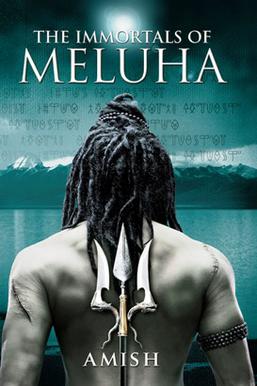meluhha indus and ancient
Set in 1900 BC in what we know as the Indus Valley Civilization, begins the story of a man whose feats turned him into a living God! In a near perfect kingdom of Meluha (created by the great Lord Ram himself )
"The story is set in 1900 BC, in what the modern Indians mistakenly call the Indus Valley Civilisation. The inhabitants of that period called it the land of Meluha – a near perfect empire created many centuries earlier by Lord Ram, one of the greatest monarchs that ever lived.
The once proud empire and its Suryavanshi rulers face severe perils as its primary river, the revered Saraswati, is slowly drying to extinction. They also face devastating terrorist attacks from the east, the land of the Chandravanshis.
To make matters worse, the Chandravanshis appear to have allied with the Nagas, an ostracised and sinister race of deformed humans with astonishing martial skills.
The only hope for the Suryavanshis is an ancient legend – ‘when evil reaches epic proportions, when all seems lost, when it appears that your enemies have triumphed, a hero will emerge’."

Shiva decides to help the Meluhans in their war against the Chandravanshis,
The Suryavanshi’s (Meluhans are called so, meaning ‘descendants of the sun’) holy river Saraswati, is slowly dying, while reports of terrorist attacks mounted by their rival kingdom of Chandravanshis (descendents of the moon) come from the east
the Chandravanshis appear to have allied themselves with the terribly evil Nagas, people with many physical deformities but tremendous martial capability. The only hope for the Meluhans is an ancient legend, which tells of a man with a blue throat, who will deliver justice and end the reign of evil. All they can do is just patiently wait for their hero’s arrival.
A Tibetan war-chief arrives at the gates of Meluha with his clan, after having suffered heavy losses in a battle in their homeland. These immigrants are administered a potent drink somras, the drink of Gods, and the clan-chief’s throat turns blue, the legend has come true. Or, has it? The clan chief, Shiva, is quite surprised to see the reaction of the Meluhans, who begin treating him as a God.
Shiva learns about the Meluhan ways of life, falls in love with the princess of Meluha, Sati, marries her after many challenges are faced, and ventures off to the land of Chandravanshis, to end their evil.
Sure that the Chandravanshis are evil, the Meluhans coax Shiva, their Neelkanth, to end their reign once and for all.
Harappan
the substratum in Vedic Sanskrit and a few terms recorded in Sumerian cuneiform (such as Meluhha), in conjunction with analyses of the undeciphered Indus script.
Sumerian Meluhha may be derived from a native term for the Indus Valley Civilization, also reflected in Sanskrit mleccha meaning foreigner and Witzel (2000) further suggests that Sumerian GIŠšimmar (a type of tree) may be cognate to Rigvedic śimbala and śalmali (also names of trees)
Meluhha
Author:
Eileen Kernaghan
OCLC:
53940014
Buy:
Amazon India
Amazon US
Winter on the Plain of Ghosts is an epic story of sorcery, religious conflict, political intrigue and ecological disaster in the lost cities of the Indus Valley.
They are called the Chosen Ones -- children dedicated to the goddess Yamash and raised in pampered luxury. But such privilege comes with a terrible price. When Rujik and Bima learn of the gruesome death that awaits them as sacrifices to the Goddess, they escape across the desert to Meluhha, and the fabled city of Mohenjo-daro. Bima finds fame as a dancer; Rujik survives by turns as thief and alchemist's assistant, magician and merchant-captain. In revolt against the cruel, repressive priesthood that governs Meluhha, Rujik joins forces with the barbarian woman Utarah to lead a rag-tag army of warriors, thieves and street-sorcerers. What they unleash is a series of bloody rebellions in which much of the city is destroyed. The Wheel has come full circle. In a final desperate act of magic Rujik must invoke the totemic animals of Meluhha to save both himself and his beloved Bima from the grisly vengeance of the priests."


0 comments: